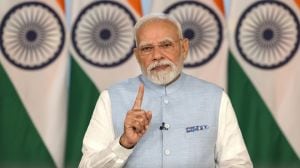IDBI not keen on merger with ICICI
MUMBAI, February 8: The proposed mega merger of the century in the Indian financial sector between the Industrial Development Bank of India ...

MUMBAI, February 8: The proposed mega merger of the century in the Indian financial sector between the Industrial Development Bank of India and ICICI has kicked up a row even before a formal announcement has been made by the government or the concerned institutions. Even though several media leaks about the merger and the appointment of leading international consultants, McKinsey, for working out the details have hit the market and banking circles, it is learnt that IDBI mandarins are not very keen about the proposed merger.
The proposed merger will be in line with the recent announcements made by Reserve Bank of India and finance ministry officials that the second phase of financial sector reforms will focus on strengthening domestic financial institutions and banks so that they can face stiff competition from foreign players. The introduction of capital account convertibility will also pose major challenges for the domestic institutions. The mega mergers of various global giants are also encouragingIndian institutions to follow suit.
Neither the government nor the institutions have given any hint openly about the merger. IDBI officials are said to be not very happy about the merger proposal. "I’ve no idea about the so-called merger. Even if the merger happens, it will have to be under the IDBI Act. I don’t know how IDBI will benefit from the merger. It should not be against the interest of shareholders of both the companies," said an IDBI official.
The Finance Ministry is believed to have sought the services of McKinsey to find out the feasibility of a merger between IDBI and ICICI. "Even if the merger takes place, ICICI will benefit from the move. IDBI is already the top financial instituion in the country. After the merger IDBI will still remain as the top institution. Who’s going to benefit from the merger?" IDBI officials asked.
ICICI has already set its own pace in the merger & acquisition (M&A) route by acquiring ITC Classic last year. It had also merged its own subsidiary, SCICI Ltd thatraised many eyebrows. The ICICI Managing Director, M V Kamath had also hinted about the merger of its banking subsidiary ICICI bank with the parent institution as part of his plan to introduce "universal banking". It has already obtained significant stakes in private banks like Federal Bank and South Indian Bank. Just after the merger with ITC Classic, ICICI MD had told The Indian Express that "ICICI was looking at more mergers and acquisitions, especially in the financial sector." For ICICI, it makes sense to merge as the combined assets of the new entity would be in the region of Rs 93,000 crore — this is still lower than the SBI’s assets of over Rs 1,10,000 crore.
Moreover, both ICICI and IDBI have promoted a host of other subsidiaries –private bank, mutual fund, rating agency, registrar and so on. The two institutions will have to offload their stake in these subsidiaries or consolidate the holdings through a different structure before merging the parent bodies.
Besides, both the institutionshave different approach towards corporate governance and operational structure. Apart from the different work culture, the process of sanctioning loans is totally different in the two institutions with ICICI senior officials having more powers to extend advances to projects.
Banking sources said the merger proposal is being taken up by the Finance Ministry at the instance of a senior official at one of the institutions. "Why are only IDBI and ICICI are being considered for the merger? There are two other institutions — IFCI and IRBI. These two institutions should also merge," said a fund manager associated with IDBI.
While IDBI chairman S H Khan will be retiring in June this year, ICICI managing director K V Kamath has several years to go for retirement. The proponents of the merger seem to be keen to have Kamath as the managing director in the merged entity. "It’s too premature to say anything at this stage, but signals are coming from the Finance Ministry about the merger," said a source.
As anobserver put it, one will have to look at the macro picture. The financial sector is being opened up gradually and one can expect more competition from foreign companies. The opening up of insurance sector and the entry of global giants will make things difficult for Indian entities.
Photos



- 01
- 02
- 03
- 04
- 05



























